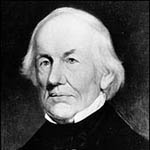Louis Laurent Marie Clerc war ein französischer Gehörlosenpädagoge. Er ist eine der wichtigsten historischen Figuren in der Geschichte der Gehörlosen.
Laurent Clerc konnte vielleicht von Geburt an hören, fiel jedoch als Einjähriger in eine Feuerstelle. Als Folge verlor er Gehör und Geruchssinn und behielt eine verbrannte rechte Gesichtshälfte. Das spätere Gebärdenzeichen für ihn – also sein „Name“ bei den Tauben – basierte auf diesem Merkmal. Mit 12 Jahren kam Clerc als Schüler in das Nationalinstitut für taube Kinder des Abbé de l'Epée in Paris, wo er nach dem Abschluss gebeten wurde, als Hilfslehrer zu bleiben.
Dort lehrte er auch den US-amerikanischen Reverend Thomas Hopkins Gallaudet die Gebärdensprache. Gallaudet trachtete danach, in den USA eine Schule für Taube einzurichten und hielt sich dazu studienhalber am Pariser Nationalinstitut auf. Clerc folgte der Bitte von Gallaudet, mit ihm nach den USA zurückzukehren und dort eine Schule aufzubauen. Laurent Clerc wurde nach der Einrichtung des „Connecticut Asylum for the Education and Instruction of Deaf and Dumb Persons“ in Hartford dessen erster Lehrer und blieb bis 1858. Er war auch für eine kurze Zeit Direktor der Pennsylvania School for the Deaf in Philadelphia. Obwohl Clerc nur ein Jahr Hilfe leisten wollte, blieb er bis zu seinem Tode 1869 in den USA.
Wikipedia
✵
26. Dezember 1785 – 18. Juli 1869
